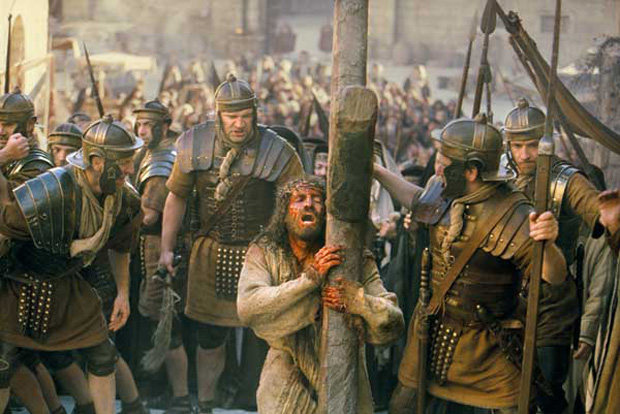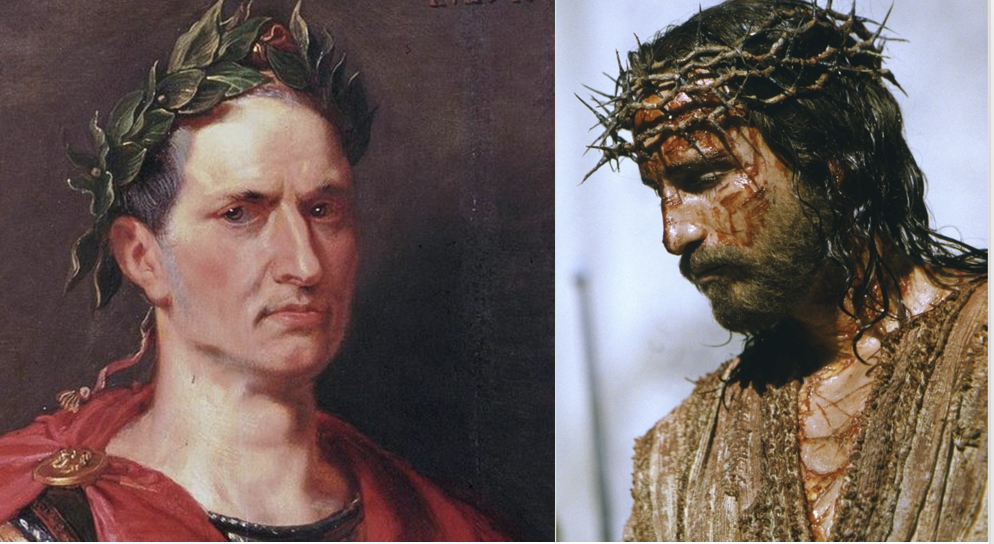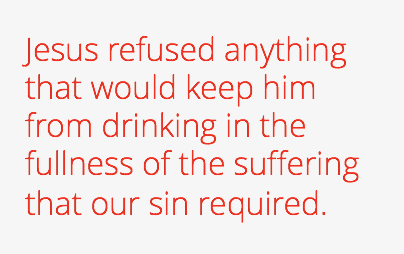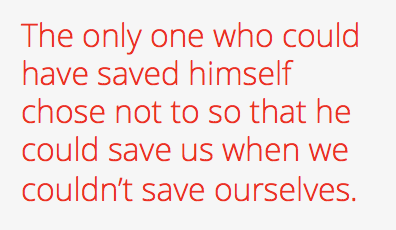How the Weakness of Jesus Rescues Us From Humanity’s Vain Pursuit of Strength

Weakness
How the Weakness of Jesus Rescues Us From Humanity’s Vain Pursuit of Strength
I hate feeling weak and nothing made me feel weaker when I was a kid than being an immigrant. My family immigrated to the U.S. from South Korea just before my fourth birthday, and growing up I had a very complicated relationship with my Koreanness. On the one hand I appreciated that I was different, that there was a specialness about being from somewhere outside of the suburb of Atlanta where our family first made a home. On the other hand, it was that otherness that felt like my greatest weakness – a giant weight that kept me from accomplishing all the strong life-goals I had for myself.
Going to elementary school in the states, I was more than happy to jettison my Korean language to learn English, and resented my parents for trying to reverse course later by putting me in Korean school. English meant I would be successful in school and have a strong future. When it was time to apply for colleges, I worked hard because I wanted to show people I was capable, but resented my immigrant parents for not being wealthy enough to pay for my tuition. It’s a story that may be unfamiliar to some (or painfully close for others). It wasn’t that my parents were themselves weak or lazy (they’re actually the hardest working people I know)- they just didn’t the generations of wealth building or status building that so many of my friends’ families had the advantage of. If your parents aren’t immigrants, you were born into a certain amount of privilege whether you realize it or not.
So heading into college, I decided that if my parents couldn’t be strong enough to provide for me, I would have to be strong for myself. I made it my goal to finish college without any debt, because being debt-free meant I could do anything I wanted after school. It would be a strong start. By the time I was in my senior year, however, despite working three jobs and earning thousands in scholarships, I still couldn’t finish without debt on my ledger. For the record, it wasn’t massive, but what that debt represented was huge: it meant that I had failed. I wasn’t strong enough to save myself.
This is, unfortunately the story of all humanity – we all desire life as it should be: peace, joy, contentment, hope, and confidence but we repeatedly find the sources of strength we look to to get us there: our parents, our friends, our spouses, our jobs, our government, constantly failing to live up to the promise. We want someone strong enough to save us from the bleakness of our world, but no one, nothing, seems to be strong enough. So we mock and resent that weakness like I mocked and resented my parents for being immigrants. We say to ourselves, “I have to be strong enough myself!” And when we realize we can’t save ourselves, we sudden find that the arrows of disdain we had pointed to others all our lives are now pointed squarely at our own chests.
Is there any hope? Oh wretched humanity we are! Who can save us from this body of death?!
God’s word takes this question and offers to us the most unexpected answer: Jesus’ weakness on the cross is what we need for our rescue. But how can this be?
The Human Condition – The Roman and Jewish Response to Weakness

After Jesus was delivered up to be crucified, the Roman soldiers dragged Jesus into Pilate’s headquarters, not just to prepare him for execution, but to revel in his weakness. The week before, the same soldiers no doubt stood at the gates of Jerusalem wondering who this man was that was being welcomed as a conquering king. The people were waving palm branches and declaring this Jesus as King and savior. Now this same Jesus was completely at their mercy.
Then the soldiers of the governor took Jesus into the governor’s headquarters, and they gathered the whole battalion before him. And they stripped him and put a scarlet robe on him, and twisting together a crown of thorns, they put it on his head and put a reed in his right hand. And kneeling before him, they mocked him, saying, “Hail, King of the Jews!” And they spit on him and took the reed and struck him on the head. And when they had mocked him, they stripped him of the robe and put his own clothes on him and led him away to crucify him

The Roman soldiers, and Romans in general, valued worldly strength, and no one had more worldly strength in their minds than Caesar. Thus, taking a man who had been heralded as a king and “putting him in his place” was just too good of an opportunity to pass up for these men of strength. Everything they did, from the crown of thorns (representing the laurel leaves of Caesar’s crown) to hitting Jesus on the head with a reed (the reed representing the emperor’s scepter – a symbol of imperial might) was meant to shame and mock Jesus as a weak king. No greater distance was there from a man and kingly respect than the picture of Jesus being mocked and beaten by soldiers sworn to serve the crown.
As horrible as that scene must have been, the story gets even worse. Matthew shifts the focus away from the Romans (again, who valued worldly power – wealth, military might, political influence, social status, etc) back onto the Jewish people:
Then two robbers were crucified with him, one on the right and one on the left. And those who passed by derided him, wagging their heads and saying, “You who would destroy the temple and rebuild it in three days, save yourself! If you are the Son of God, come down from the cross.” So also the chief priests, with the scribes and elders, mocked him, saying, “He saved others; he cannot save himself. He is the King of Israel; let him come down now from the cross, and we will believe in him. He trusts in God; let God deliver him now, if he desires him. For he said, ‘I am the Son of God.’” And the robbers who were crucified with him also reviled him in the same way.
The Jewish people valued spiritual power; as Israelites, had a long Biblical history of struggling with spiritual superiority. By claiming to be the Son of God, the Jewish leadership rightly understood that Jesus was putting himself equal to God the Father.
This was why the Jews were seeking all the more to kill him, because not only was he breaking the Sabbath, but he was even calling God his own Father, making himself equal with God. John 5:18
Unlike the Romans, the Jews mocked Jesus’ weakness as the son of God, invalidating his past miracles, and, in the case of the chief priests, taunting Jesus with the thing Jesus valued most: belief. “Oh if only you could do this one last thing… then we’d believe in you!” The truth was, they had no intention of believing in Jesus. It was just another way of expressing their contempt.

Matthew concludes the scene by pointing out that the robbers who were crucified with Jesus also mocked him. As English readers, we may miss the point that Matthew was actually referring to these criminals as insurrectionists or revolters rather than just guys who stole some stuff (growing up, I always thought death by crucifixion was a bit over the top for guys who just stole something… but it turns out that the cross Jesus hung on was meant for Barabbas, another “robber” guilty of murder and rebellion against the empire). These insurrectionists were being crucified because they had decided to take their religious zeal in a violent direction, trusting not in their moral superiority, but their willingness to draw a sword in the name of holy war. By putting the chief priests together with these rebels, Matthew was demonstrating that the full spectrum of religious ideology was mocking Jesus’ weakness. The chief priests represented guile, moral superiority, and religious piety. The insurrectionists represented religious zeal, holy war, and violence.
The moment of Jesus’ crucifixion was truly a moment where Jesus stood alone. The whole world had rejected him. Liberals and Conservatives. Secular and Religious. Politicians and Zealots. The social elite and the social deviant. Jesus represented all that was weak and powerless in the world. And all of humanity hated him for it.
Our Response: Receive Jesus’ Weakness
So why does God point to Jesus in his weakest moment as the moment of salvation for us? Matthew gives us a clue right in the middle of his account of Jesus’ crucifixion:
…they offered him wine to drink, mixed with gall, but when he tasted it, he would not drink it. Matthew 27:34
Gall (or Myrrh) was a traditional medication used to help ease pain and numb the senses. The act of offering Jesus wine mixed with gall was, perhaps, a merciful attempt to ease his suffering.  But he refused it. Why? Because Jesus understood that what he was doing on the cross required his full attention: He was drinking in the sin of all humanity and suffering the penalty of our rebellion against the God of the universe.
But he refused it. Why? Because Jesus understood that what he was doing on the cross required his full attention: He was drinking in the sin of all humanity and suffering the penalty of our rebellion against the God of the universe.
Jesus refused anything that would keep him from drinking in the fullness of the suffering that our sin required. Despite appearances, Jesus’ weakness was actually his moment of greatest victory. Check out what Paul writes to the Colossian church:
And you, who were dead in your trespasses and the uncircumcision of your flesh, God made alive together with him, having forgiven us all our trespasses, by canceling the record of debt that stood against us with its legal demands. This he set aside, nailing it to the cross. He disarmed the rulers and authorities and put them to open shame, by triumphing over them in him. Col 2:13-15

It wasn’t Jesus’ weakness or inability to affect his circumstances that held him on to the cross; it was the strength of his love for you that held him there until the full payment of our sin-debt was paid. The most incredible thing about the crucifixion of Jesus Christ is that he held himself there in weakness to take our weakness away. The only one who could have saved himself chose not to so that he could save us when we couldn’t save ourselves. Or put another way:
He who knew no sin became sin so that we might become the righteousness of God. (2 Cor 5:21 – corrected)
So what does that mean for us? It means that the answer to life’s greatest question, how can we be saved from the brokenness, wretchedness, and weakness of this world (and our own hearts), is in fact the obedient, faithful, beautiful weakness of Jesus Christ’s sacrifice on the cross. We can’t earn it. We can’t fight for it. All that’s left for us to do is to stop striving for strength and receive it. And once received, watch that reality of our rescue from sin and death by grace through faith utterly transform our lives.
Just after I graduated, and right before my wedding, my parents pulled me aside to tell me that they knew about my school debt. I had kept it secret from them (I didn’t want them tosee me so weak after all), but they knew. They told me that they were going to take on my debt. They had been saving to make sure that Brandee and I could start our new life together free. Strong. They took my weakness on to themselves. Honestly, it wasn’t the money that made that money so amazing; it was the fact that for years, I had failed to love and appreciate the sacrifices my parents had made for me when I was young. I had always thought they were weak – but the reason they looked weak was because they were denying themselves in order to prepare for that very moment. The result? Brandee and I love my parents. We celebrate our Koreanness as a great strength (yes, even if Brandee isn’t technically Korean herself, I marvel at how often she seems more Korean than me!). And most importantly, it taught me what it meant to be a father that reflected God’s love for his children.
More in Devotionals
June 3, 2023
Exodus 1 Devotional ThoughtJanuary 18, 2022
Should Christians Be Involved in Politics?December 24, 2020
Advent 2020: Promise
Leave a Comment
Comments for this post have been disabled.